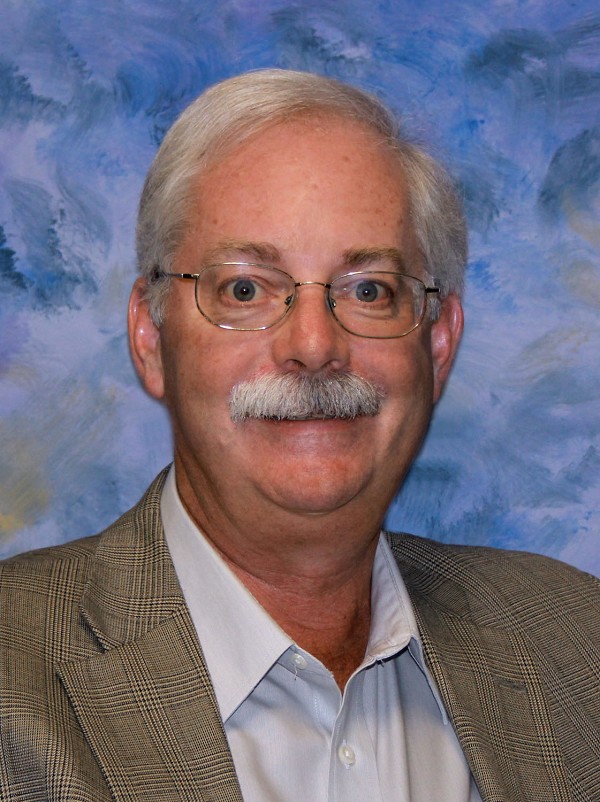ENERGY CRISIS! Solar Shingle Guru Dr. James Stevens Cites Need for Solution
|
||||||||||
| Printer Friendly Story View |

Dow scientist Dr. James C. Stevens holds 1,100 global patents.
Perhaps Dow Chemical's most honored scientist forecasts massive challenges for the chemical industry in the United States.
Dr. James C. Stevens, recently named a Dow Distinguished Fellow, told an audience at Texas A&M University in 2011 that of 80 chemical plants planned globally in the next decade only one will be located in the U.S.
Energy volatility is a key issue for the chemical industry, he said. New plants are going where feedstocks are cheapest. Dow for example uses a million barrels of oil a day, producing electricity equivalent to that of Australia.
Even though energy is used at a tremendous rate, the chemical industry consumes only 8 percent of global energy per year (from oil, coal, natural gas).
OPEC countries obtain oil at $6-20 per barrel while the U.S. cost is $90-120 per barrel.
Solar energy is not a solution to the energy crisis because of limited sunlight, he said.
The use of biomass (vegetation) is questionable and United Nations has called for a five year moratorium on the use of food sources as fuel stock.
Use of corn to produce ethanol, recommended by former President George W. Bush, has had "serious consequences," using 20 percent of the corn crop and doubling prices in the past decade, said Stevens.
Dow invested $12 million in corn R&D and production has tripled in 50 years, he said.
Among other Stevens conclusions:
U.S. industry is at a competitive disadvantage in petroleum discovery since most untapped reserves are off limits or federal leases and regulations are too high and red tape entangled;
Cost of natural gas, for example, is an extra $100 billion per year, priced at $7.10 per million BTUs in the U.S. as compared to 75 cents for the same amount in Saudi Arabia;
Carbon capture schemes from the 50,000 global electrical generating plants "probably will not make a significant impact from an industry perspective."
He cited a statement by Dr. William Chameides, professor of environmental science at Duke University: "It's a perfect storm headed our way--a steady rise in demand for oil crashing up against an increasing limited supply of economically recoverable oil."
Dow has been involved in one project that may help offset the problems, he said: a pilot algae-based integrated biorefinery built in Lee County, Florida in partnership with Algenol Biofuels to convert carbon dioxide into ethanol.
Discoveries in the field of polymers, including development of the Dow solar shingle, have brought Dr. Stevens 1,100 global patents and a new award.
Dr. Stevens, who was National Inventor of the Year 1994, has been named a Dow distinguished fellow. Stevens' discoveries in the area of polyolefin catalysis have revolutionized the production of linear low-density polyolefins, creating a number of successful polymer families and resulting in billions of dollars of revenue for Dow.
"Jim is an extraordinary role model for innovation in science and technology, said William F. Banholzer, executive vice president, Ventures and New Business Development and Chief Technology Officer. "He has delivered business results which have significantly impacted Dow's growth and is widely known for his contributions in the fields of catalysis and polymer chemistry."
"His leadership will be vital in delivering on our innovation goals and preparing the next generation of great innovators."
The role of distinguished fellow is a newly created position, and represents the most senior technical role in Dow. It is reserved for candidates who have the proven performance and skills to drive technical innovation across the entire company.
Distinguished fellows are expected to exert strategic influence on the direction of global R&D programs, as well as develop talent within R&D, helping to set standards for individual performance and scientific work.
An organometallic chemist, Stevens was the force behind the discovery and commercialization of the INSITE (TM) Technology family of single site catalysts. In particular, his discovery of Constrained-Geometry Catalysts and recognition of the long chain branches they created, have proven to be a great commercial success. Stevens' use of high-throughput techniques led to a rapid development of a range of new materials.
Successful products that arose from these efforts include: AFFINITY (TM) Polyolefin Plastomers, ENGAGE (TM) Polyolefin Elastomers, ELITE (TM) Enhanced Polyethylene resins, NORDEL (TM) IP Elastomers, VERSIFY (TM) Propylene Copolymers, and INFUSE (TM) Olefin Block Copolymers. Most recently, Dr. Stevens contributed to the development of the Dow POWERHOUSE (TM) Solar Shingle.
Stevens is recognized as a world expert in olefin polymerization and an impressive list of awards, honors and publications reflect his standing in the scientific community. Among these are: the 2006 Perkin Medal, one of the highest technical awards in industrial chemistry, the 2010 Houdry Award, induction into the National Academy of Engineering in 2011, the 2006 ACS National Award in Industrial Chemistry, and the 1994 National Inventor of the Year. Stevens is also listed as an inventor on 98 US patents and more than 1100 global patents.
He has authored eighteen scientific publications and is the recipient of the 2006 Herbert H. Dow Medal, the highest technical honor Dow bestows on its own researchers. And, in 2011, he received an Honorary Doctor of Letters from Texas A&M University.
Dr. Stevens joined Dow in 1979, after having graduated with B.A. in Chemistry from The College of Wooster in Ohio and a Ph.D. in Inorganic Chemistry from The Ohio State University.
He is a member of the National Academy of Engineering, the Academy of Medicine, Engineering and Science of Texas, American Chemical Society, and is a Fellow of the American Association for the Advancement of Science. He is also an advisor on the National Science Foundation Center for Chemical Innovation on Solar Fuels based at Caltech.
###
| Printer Friendly Story View |
|
|

Dave Rogers |
|
|
|
Printer-Friendly Story View
0200 Nd: 04-20-2024 d 4 cpr 0
12/31/2020 P3v3-0200-Ad.cfm
SPONSORED LINKS
12/31/2020 drop ads P3v3-0200-Ad.cfm


